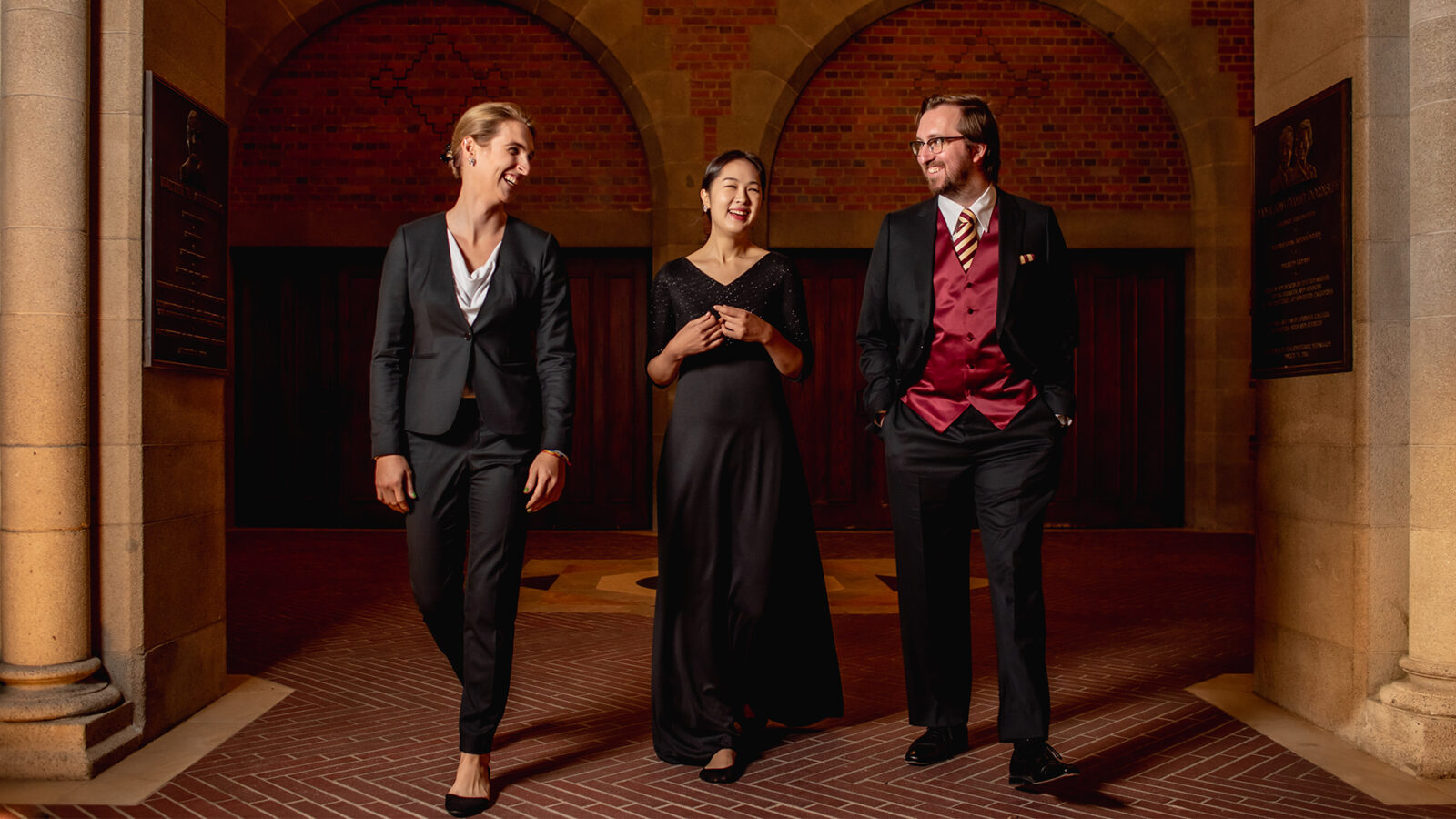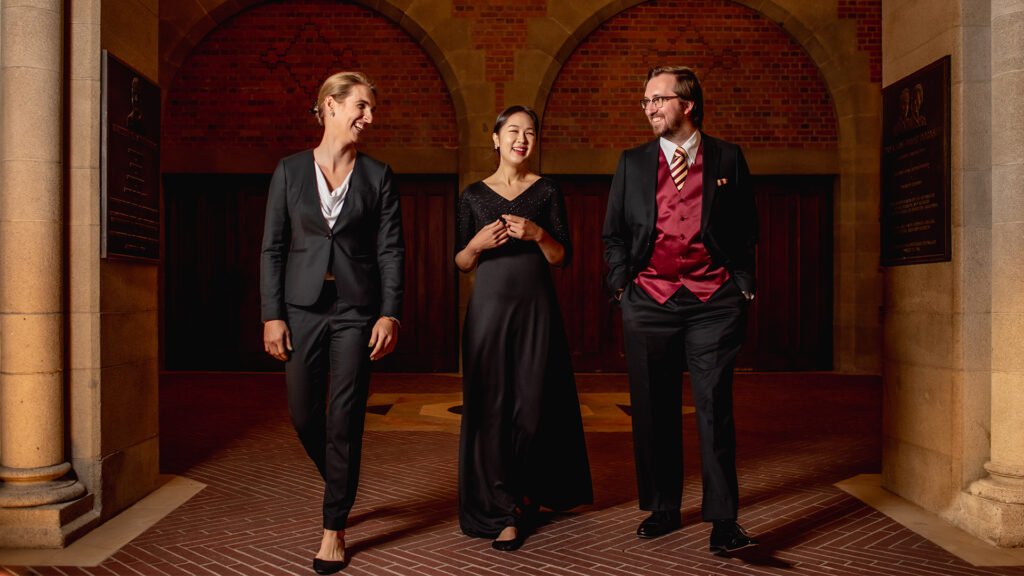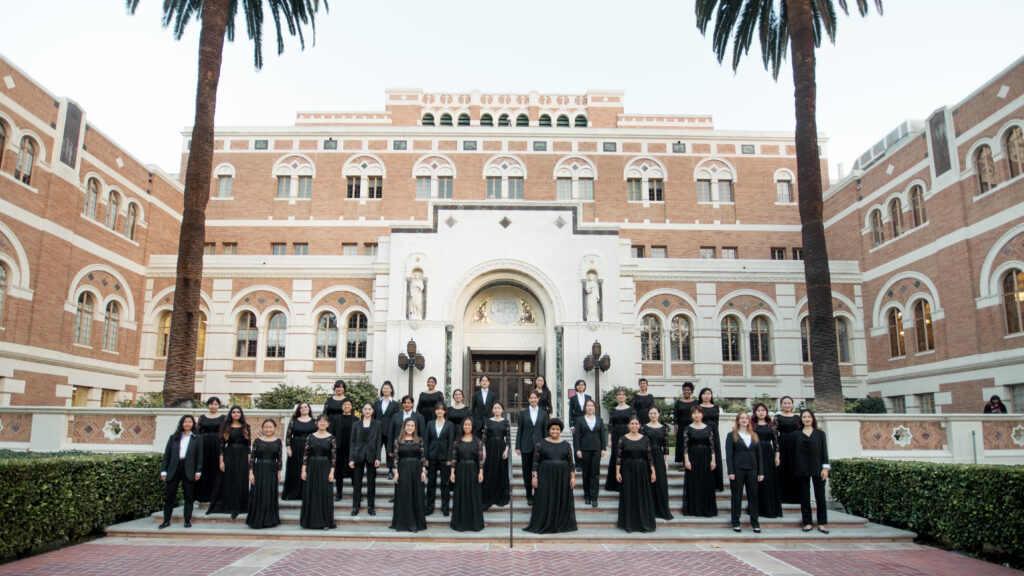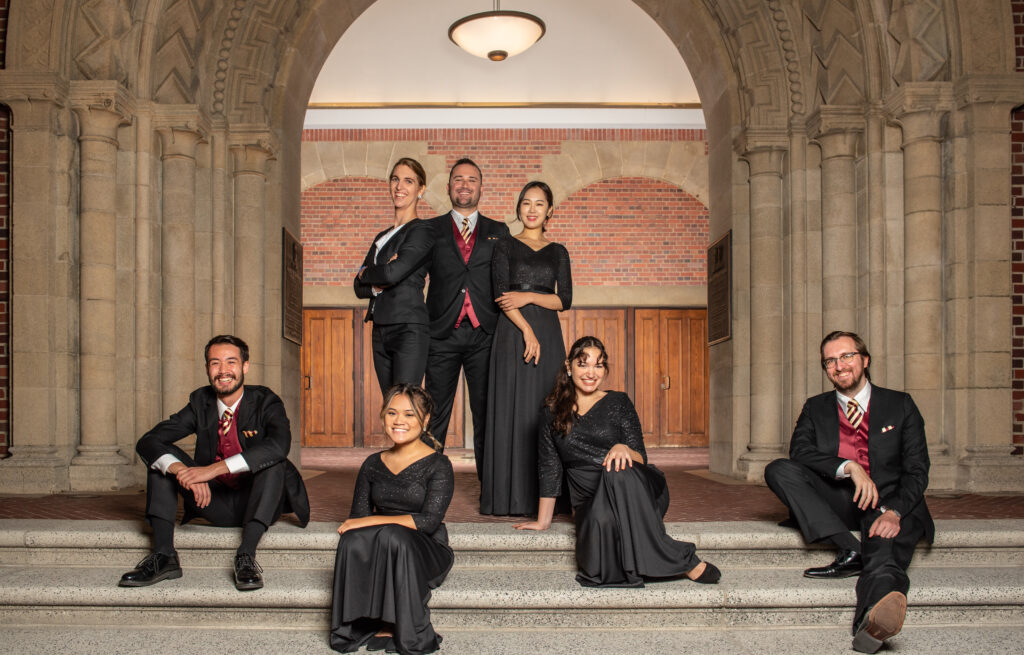
A More Affirming Experience
By Tyler Francischine

The USC Thornton Department of Choral & Sacred Music offers gender-inclusive performance attire for all student ensembles.
The USC Thornton Department of Choral & Sacred Music understands that for each student to perform at their very best, they first need to feel safe, comfortable and able to be themselves. In efforts to provide an inclusive experience for all of their students no matter their gender identity, the department has adopted new, gender-inclusive performance attire for their choral ensembles.
“We want to create a safe space in our USC environment for someone who might not have had the courage to experiment, explore or even have these conversations to find out what might give them a more affirming experience,” says Stevie Hirner, lead director of the USC Thornton University Chorus and a doctoral student and graduate teaching assistant in the department of choral & sacred music.
Earlier this year, Hirner gathered a committee of her fellow graduate students to discuss methods for implementing more inclusive performance attire. Hirner conducted research on local tailors and learned about SharpeHaus, a company whose mission statement expounds their commitment to driving “equality and positive values in fashion, mainly gender inclusivity.” This summer, SharpeHaus and Hirner’s team collaborated to create four distinct attire options for USC choral students, including two non-binary designs: a traditional dress, a traditional suit, a masculine-cut blazer paired with a feminine-cut pant and finally, a feminine-cut suit paired with a gender-neutral blouse in place of a more masculine, button-up shirt.
Hirner says about 15% of the students opted for one of the non-binary options, and she’s been moved by the feedback she’s received.
“I’ve already had a number of students who opted for these new, non-binary options reach out to me personally and say, ‘Thank you. I’ve never felt comfortable in choir attire before now. I finally feel like I’m wearing something true to me,’” Hirner says. “We want to create that environment for years to come.”

Student Sam Avila, who performs with the USC Thornton Chamber Singers, says the new uniform options promote feelings of comfort and confidence in their own appearance. Avila chose a masculine cut blazer paired with feminine cut pants.
“Throughout my experience being in choirs, I always dreaded the idea of uniforms. I personally did not feel comfortable with any of the suits they offered me or how they looked on my body. I felt like I had to conform instead of being comfortable and confident. When hearing about the different options Thornton was offering, I finally felt that I could be comfortable in a suit because it was made for me,” he says. “When trying on my suit for the first time, I genuinely liked what I saw reflected back in the mirror. Having these options ensures that each student, however they may identify, knows that they are in an inclusive space where their gender expression is recognized and honored.”
Student Callia Geib, who sings with the USC Thornton University Chorus, recalls trying on their new suit for the first time. It was an experience replete with joy and relief.
“For so much of my life, I tried to fit the vision that other people had of me. It wasn’t until this past year that I finally accepted every part of myself and resolved to be true to who I am. I dress, speak and act the way I do and am unapologetic about loving what and how I do. I am finally comfortable being me,” Geib says. “Not once in any of the choirs I have been in did I ever truly feel like I could be myself in every moment. Having the opportunity to sing in this choir and be on stage in concert attire that makes me feel powerful, confident and like me is beyond description. Putting on my suit for the first time was a dream come true, and there wasn’t a second wearing it in which I wasn’t smiling.”

Cristian Grases, chair of the Thornton Department of Choral & Sacred Music, says he is proud that his department has entered into a conversation around gender, identity and inclusion, and he hopes this is only the beginning.
“We are very pleased that our ensembles have new attire with gender inclusivity in mind. We are creating something that is very unique and important here,” Grases says. “We want to inspire other institutions to do something similar.”
Hirner says one of her top priorities during her time at Thornton is to continue to create a safe space for students, faculty and staff of all identities to fully realize and express themselves.
“Traditionally, choral singing – both the action and the attire – has been very binary. Sopranos and altos are traditionally called women, and tenors and bass are called men,” Hirner says. “As this social awakening is gaining traction, more of society is prioritizing the comfort level of all individuals. It has become important to USC, and it’s important to me personally, because I am trans. A lot of my research while at USC has focused on how to make choirs a more comfortable place for trans individuals, and this is a crucial step along the way. We want to create an environment where we are less focused on the perfect uniform aesthetic of altos and sopranos in dresses and tenors and basses in suits. We are placing more focus on how to make our singers feel comfortable being authentic while putting the emphasis on the music itself.”

